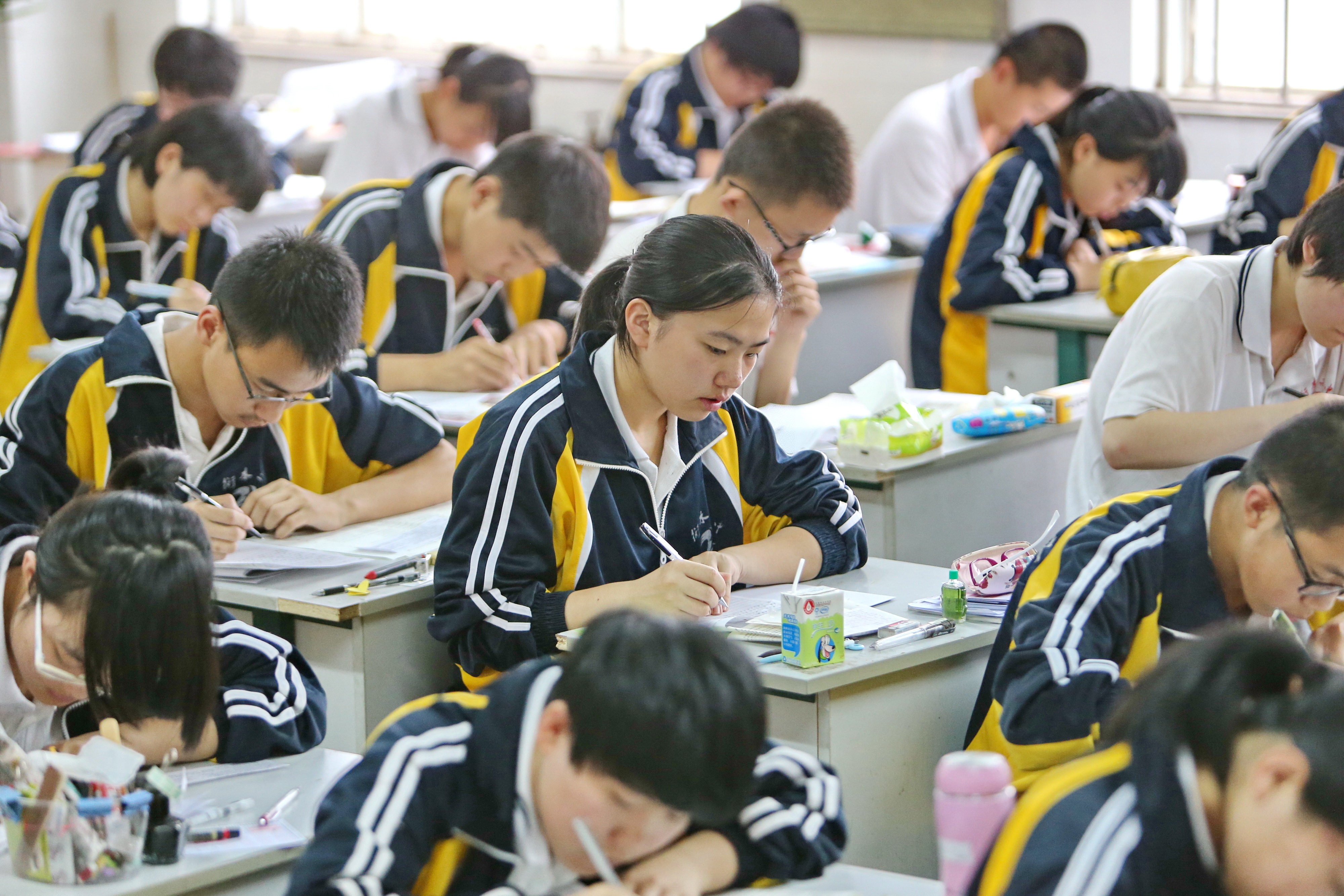Education evaluation system in China: Competitive or comprehensive?
- By Mathew Wong
 0 Comment(s)
0 Comment(s) Print
Print E-mail China.org.cn, February 16, 2020
E-mail China.org.cn, February 16, 2020

Since resumption of the college-entrance-examination (gaokao) in 1977, China's Ministry of Education has released seven policies to alleviate the academic burden on students. In 2018, a government document with 30 guidelines to ease such pressure was published, intending to guarantee quality teaching in compulsory schooling, enforce strict regulation on extracurricular tutoring centers and promote comprehensive student development.
However, it was estimated that, in 2018, there were around 400,000 off-campus institutions, more than half of them needing further investigation.
One sub-school of a leading education group was reportedly running without permission by the local educational authorities. Meanwhile, the number of kindergartens, specialty training classes, or even international schools and universities is soaring, some operating illegally.
Behind these cases, we see an increasing societal demand for enhancing children's "competitiveness," and Chinese parents' continuous desire to obtain the best education opportunities available.
In fact, amid consistent appeals for reduction in such burdens, there has indeed been a slight decrease in hours spent on school homework. On the other hand, it takes much more time and effort for students to enroll in non-scholastic extra-curricular activities.
Additionally, the huge demand for "shadow education" – private supplementary tutoring – creates greater difficulty in supervision and management of these illegal educational institutions. These new trends tend to render the burden reduction policy ineffective or even counterproductive.
Most recently, the Ministry of Education stated that strengthened administrative law enforcement was required. Apart from enhanced regulation on tutoring classes, the unveiled guideline demands educational authorities to investigate illegal enrollment, illegal issuance of academic certificates, and teachers' illegal behavior and misappropriation of education funds.
Admittedly, the guideline can help accelerate the establishment and improvement of the education management system with clear authoritative responsibilities, promote the modernization of education governance, and more importantly, help facilitate fairness, equality, and transparency in the education system.
Yet, exposed to a competitive evaluation system, the guideline won't impact by lowering parents' expectations in regard to their children, and thus the so-called shadow education will remain a popular and significant sector in the education system.
Some educational analysts are saying there is a great need for a far more comprehensive evaluation system, particularly for primary and secondary education, to help ease the excessive academic burden on students, under which performance should be evaluated by a set of combined factors.
A comprehensive assessment can not only decrease the "score" tension among students, parents and teachers, but also help improve students' mental development. In order to relieve the pressure brought by peer competition, in February 2018, the Ministry of Education, together with other three ministries, issued a regulation that, after-school training institutions cannot engage in any training activities beyond the established teaching syllabus; graded examinations and competitions are clearly proscribed.
However, when faced with limited education resources in terms of admission quotas, parents find it reasonable and even exigent to send their children to various tutoring centers, seeing it as the only way to avoid them falling behind their peers. From the parental perspective, there actually is a blurred distinction between a comprehensive and a competitive evaluation system, and what they pursue is simply the best outcome possible.
From a broader viewpoint, competition is the root of motivation for most individuals, and competent and qualified talents can contribute to social and economic advance. Competitiveness, on the other hand, requires endurance and sustainable development; for example, a ranking-focused education pattern may ignore students' ability in imagination and curiosity, and possibly limit their long-term potential.
While there always are standardized examinations, education should be a life-long process instead of a race with a clear finish line. For parents, it would be better if they can avoid blindly exerting pressure on children, instead of cultivating their children's interests for them.
For Chinese educational authorities, finding a balance between a competitive and comprehensive evaluation system is an efficient but significant way to help alleviate the academic burden on children, and also cultivate more varied talents to fit with the needs of national development.
Mathew Wong is an assistant professor in the Department of Social Sciences at the Education University of Hong Kong.
Opinion articles reflect the views of their authors only, not necessarily those of China.org.cn.
If you would like to contribute, please contact us at opinion@china.org.cn.






Go to Forum >>0 Comment(s)